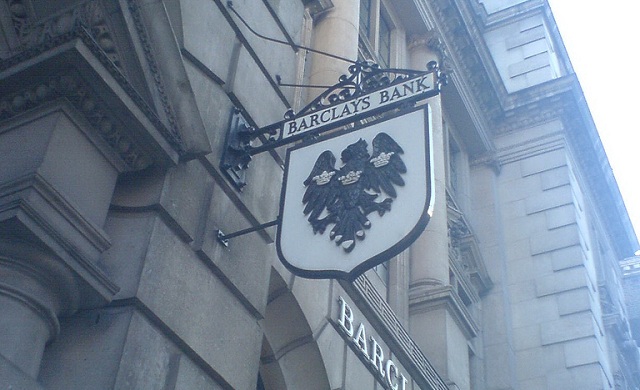The following is an extract from my new eBook, Lessons From The Financial Markets For 2013 covering Barclays. In fact, as it was written a few weeks before it was announced that former FSA Chief Hector Sants was joining Barclays in a compliance role. The paragraph highlighted in bold foretold this move, and to my mind, you really could not make it up.

Chronicle of a Job At Barclays Foretold
Given the way that Sants was in charge of a FSA (between 2007-2012) that missed the greatest financial crisis in history, the fall of the UK banking sector and Libor, one would doubt that he is being hired for his compliance skills. Perhaps the job requisite may be a continuation of the asleep at the wheel 2007 – 2012 approach, which might allow Barclays to get on with “business as usual “undisturbed, but with a high quality figurehead on the regulatory side.
Lessons From The Markets For 2013 is available on Amazon.co.uk by CLICKING HERE
Barclays: The Set Up
I have to admit that in terms of me and my memory, to suggest that it is like a sieve would be flattery. Nevertheless, what sticks out in my mind about 101 Charts For Trading Success (the first Zak Mir eBook), now nearly two years old, is the way that the coverage of Barclays Bank was very much focused on the then head of its investment bank Barclays Capital. My description of Mr Diamond was as someone you would not want to meet in a dark alley, or indeed, any alley. In fact, he’d already been collecting comments in a similar vein, before his appointment as CEO of Barclays at the beginning of January 2011. What we now know, as was revealed in 2012, is that the FSA also felt that he may not be quite the perfect candidate as CEO. Like me they did nothing about it. I have the excuse that I was busy with other more pressing matters such as the writing on my website; presumably they were affected by contingencies of a similar nature. Another incentive these days not to nip a scandal in the bud is that there is no “result” to justify the existence of the regulator, and no £300m fine.
But it was interesting that this year I did run into someone who alleged to be a former employee of the FSA. He described the regulator as being an entity which is essentially the stepping stone for those wishing to get proper jobs in the city. On this basis their day-to-day “regulating” of firms such as Barclays and other financial groups is essentially a networking process ahead of them being given jobs around the City of London. Therefore, one would imagine that while FSA employees will always be keen to give the impression of being fully capable in what they are doing, the concept of not wanting to bite the hand that feeds them or may feed them in the future might come into play.
The idea also ties in with the concept that the only financial punishments we have seen have been limited ones in the form of fines rather than anything more serious such as closing down the relevant businesses or parts of businesses. Bank of Credit and Commerce International (BCCI) was closed 20 years ago on the basis largely I presume that it was founded by a Pakistani (my heritage), and secondly that massive money laundering was alleged. Massive money laundering at Standard Chartered (STAN) et al led only to fines. I see closing down a bank, if only as an example to others, as the only thing which would be a guarantee of prevention in future of scandals such as payment protection insurance and of course Libor. It seems clear that a £300 million fine for a company generating several billion a year is no more than a slap on the wrist, especially when the concept of reputational damage does not really exist given how the man in the street already loathes the banking sector for a myriad of reasons.
Indeed, all that a fine tends to be is no more than a windfall tax which given the way that such business models work, will be paid by the retail customer above anyone else. But of course the retail customer was the main victim of Libor in the first place.

 Hot Features
Hot Features












